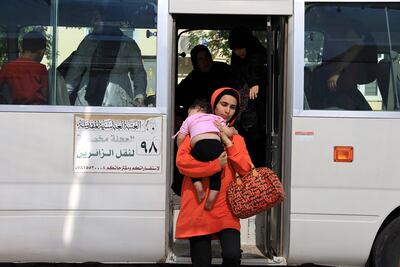We live in an era of unprecedented global displacement. According to figures published in June by the UN’s refugee agency, more than 120 million people are displaced globally; 40 per cent of these are under the age of 18.
Behind these numbers lie people with potential – people who, given the opportunity, could support themselves, their families and significantly contribute to the global economy. At the same time, the global workforce is undergoing a profound digital transformation characterised by the normalisation of remote work. This is creating unique opportunities for people such as refugees who have been traditionally excluded from formal employment.
This shift allows displaced people to overcome typical barriers to employment and contribute meaningfully to the economy. The digital economy, with its lack of geographical boundaries, enables refugees to work regardless of where they are based – in urban centres, in rural settlements or even in refugee camps.

A win-win scenario is evident. As many developed countries face both digital skill shortages and demographic challenges, global demand for digital skills will continue to grow exponentially. According to the European Commission, the EU predicts a shortage of 756,000 IT professionals by next year. As the digital economy continues to grow and the demand for talent increases, we find ourselves at a critical juncture, confronting a lack of skilled labour in the Global North and a lack of jobs in the Global South. This provides significant opportunities for untapped talent pools such as refugees.
Despite the potential of refugee integration in the digital economy, significant barriers exist. Many refugees are unable to take advantage of this opportunity due to legal, financial and even practical barriers. Many host countries either restrict refugees’ right to work altogether or severely limit their opportunities. According to the UNHCR, 70 per cent of refugees live in countries that place restrictions on their right to work, leaving many trapped in cycles of dependency.
Even with the right to work, availing of opportunities in the digital economy can be complicated. This can be down to having limited access to the necessary digital infrastructure, lacking the relevant documentation, education or skills, or not having the experience to compete in a fast-paced, globalised digital economy.

Governments must lead the way in creating the conditions that allow refugees to be included in the digital economy. A legal right to work ought to be guaranteed for refugees everywhere. Legal frameworks must ensure that refugees can work freely, including in the digital economy. Governments must prioritise refugee work rights, not as a symbolic gesture, but because it makes economic sense. This also extends to the necessary identification documents needed to access financial services.
Integrating refugees into the digital workforce can contribute to a country’s economic growth and diversification. Remote digital work allows refugees to contribute to the economy without directly competing for “local” (or location-specific) jobs, potentially bringing in foreign currency through international clients and employment. Employed refugees contribute to the tax base through both income and consumption taxes, increasing government revenue. This means that host governments can reduce the financial burden of hosting displaced populations, while refugees gain financial independence and dignity.
In reality, current gaps in laws and regulations governing remote digital work can provide a degree of flexibility, allowing refugees to access digital employment opportunities. However, these gaps also underscore the need to adapt existing legal frameworks and introduce new provisions to ensure long-term support and protection for refugees in the digital economy.

Investment in digital infrastructure also is essential. Without affordable access to technology and high-speed internet, even the most talented refugees are left on the sidelines. Collaborations between international organisations, governments and the private sector can ensure that refugees are able to access the tools they need to succeed in the digital economy. The focus should not be on short-term solutions but on sustainable models that integrate digital literacy and ongoing support for refugee communities.
There is also a need for education and training when it comes to in-demand skills. Many refugees lack even a basic digital literacy, excluding them from these opportunities. Although training programmes that provide accessible digital skills and certification exist, scaling these initiatives to reach more refugees globally is crucial.
The private sector has a pivotal role to play. Many companies are eager to hire skilled workers, but they are unaware of the untapped talent that exists within refugee populations. Hiring refugees is more than a corporate social responsibility imperative – rather there is a business case for inclusive hiring practices that target refugees. By doing so, companies not only fill skill gaps with diverse talent, something that is known to increase teams’ performance, but also make a real impact on global challenges, helping refugees regain control over their lives.
There is a shared responsibility for refugee inclusion in the digital economy. Co-operation between host governments, the private sector, international organisations such as the UN, the World Bank, and the International Labour Organisation, civil society organisations and philanthropy is needed. Refugee integration in the digital economy is not just an act of goodwill – it is smart business. Refugees bring diversity, resilience and a wide range of skills to the workforce.
By integrating refugee talent into the digital economy, companies can foster innovation and drive growth while addressing global inequalities. Economic empowerment through digital work is not just about financial stability, it is about restoring dignity and agency to those who have been displaced.
The moral imperative for refugee inclusion is clear. In today’s interconnected world, leaving refugees out of the digital economy is not just a missed opportunity – it is a failure of our collective responsibility. It is time for governments, international organisations and the private sector to do more. By investing in refugee inclusion, we are not only creating economic opportunities but also fostering a more just and equitable world.


